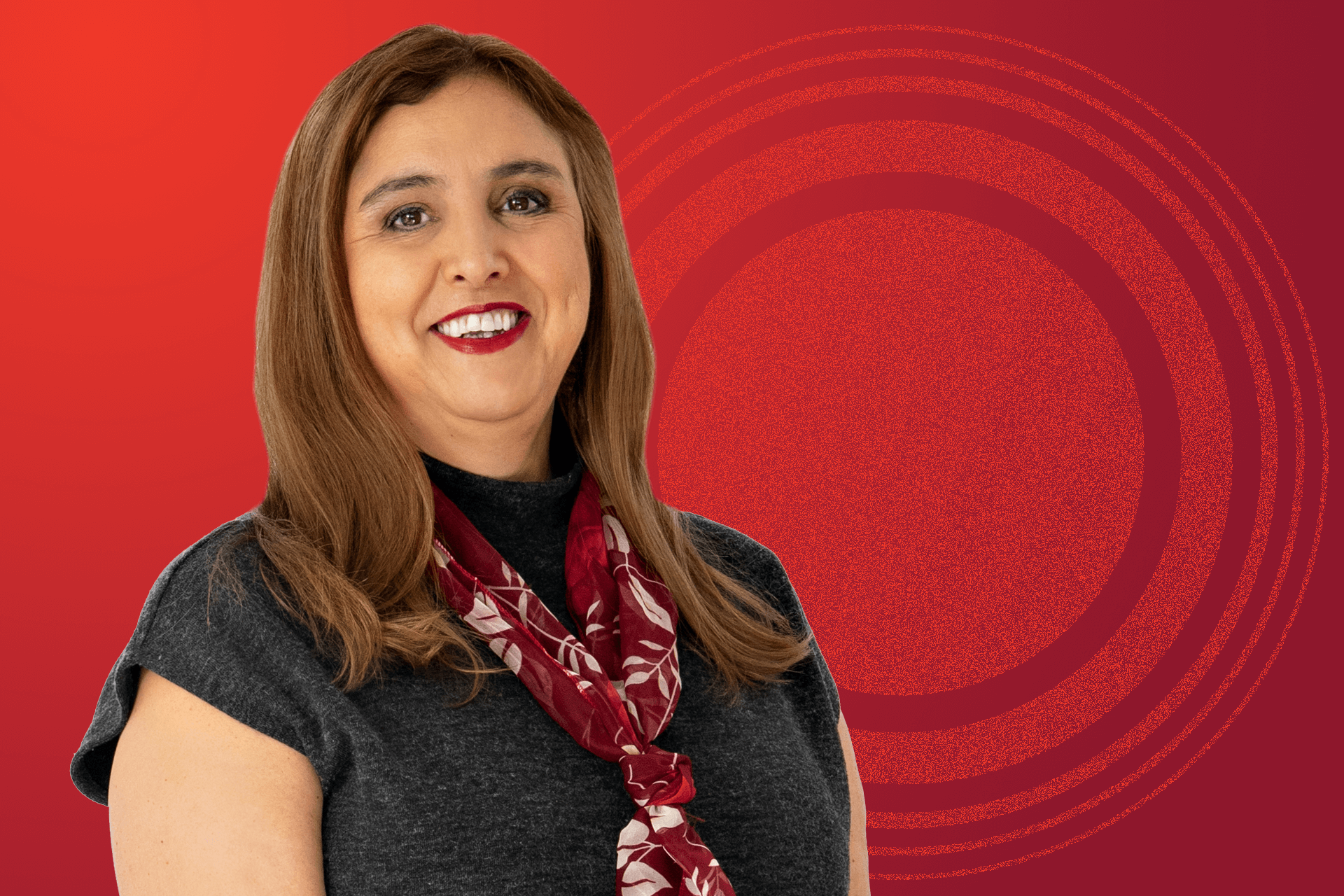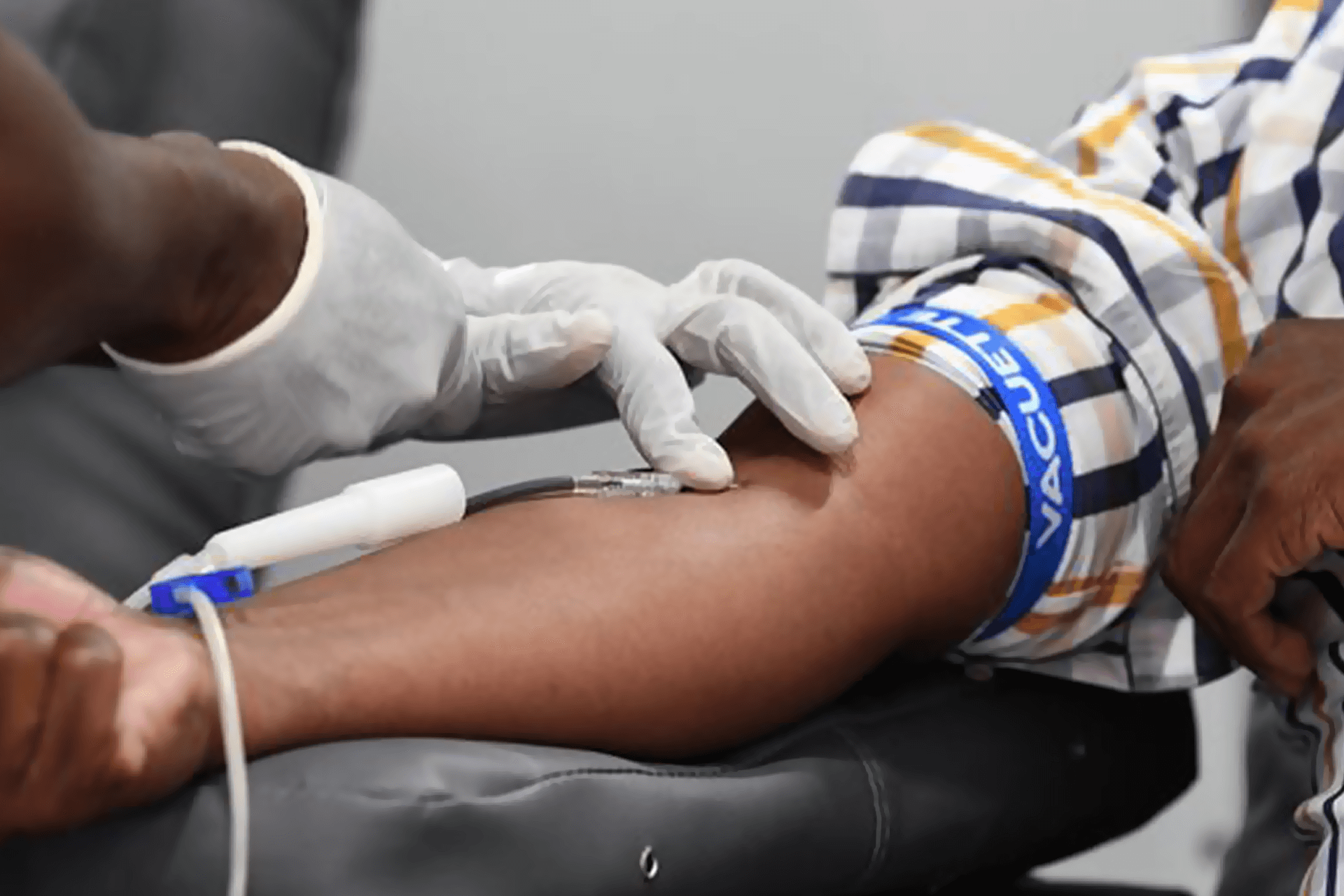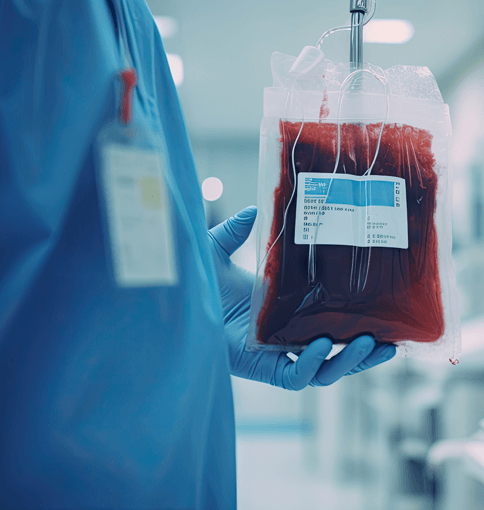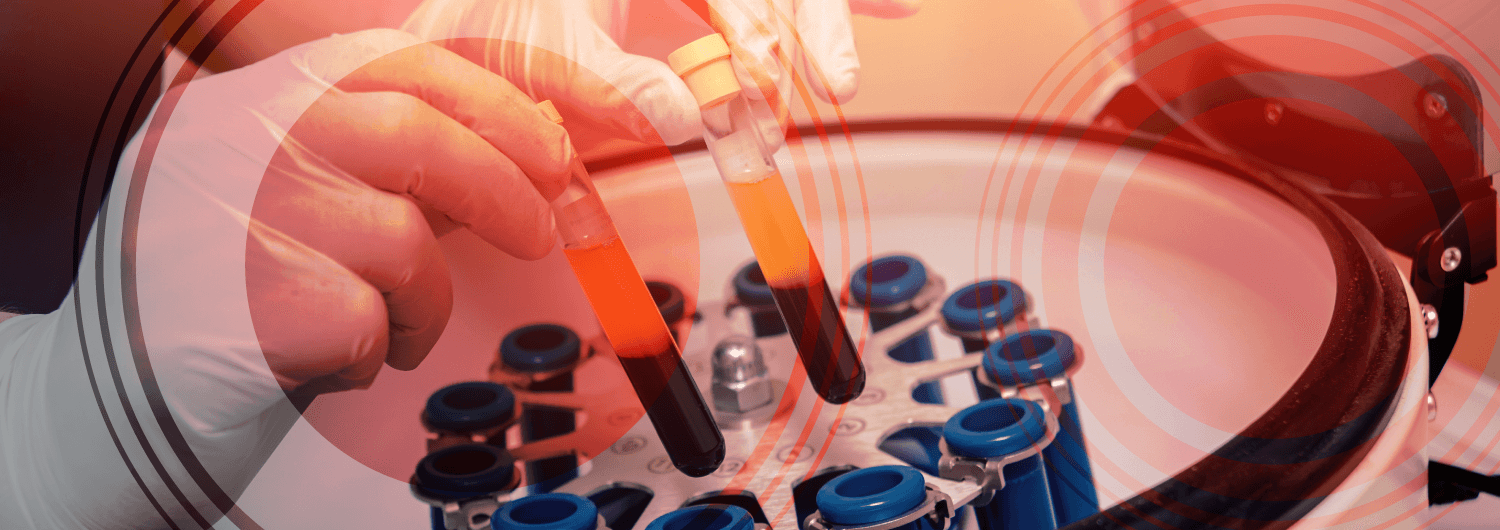OUR BUSINESS
Medical Director’s Report
This year was marked by significant accomplishments for SANBS, including the successful implementation of the BECS project and continued growth in several key areas.
However, it was also a year of challenges, including a growing skills shortage and an ever-increasing demand for blood products.
Dr. Karin van den Berg, Medical Director

The Year Under Review
Reflecting on the past year, it was one of transformation marked by significant achievements and challenges. It was especially gratifying to see the culmination of several of our multi-year iHEALTh objectives reach fruition.
At the same time, we had to contend with ongoing scarce and critical skills shortages amid the ongoing challenges in both the public and private healthcare sectors. And between all of this, our dedicated staff still found time to contribute to the scientific body of knowledge through various research initiatives and local and international collaborations.
Significant Investment in our Manufactured Capital Continues
The year was dominated by the implementation of the BECS project, the culmination of several years of dedicated work by multiple teams in SANBS. By the nature of this project, it consumed a lot of energy and resources necessitating the delay of certain projects. However, one of the pleasing unexpected outcomes of the BECS implementation was the upgrade and expansion of our IT infrastructure to accommodate BECS. This will now enable us to digitise many other processes as an indirect benefit. Although BECS go-live is hugely positive, ongoing digitisation led to certain staff redundancies. We are currently exploring ways to redeploy these employees within SANBS.
During this period, two other major projects reached completion with SANBS being awarded two prestigious international accreditations. The first is the Joint Accreditation Committee ISCT-Europe and EBMT (JACIE) accreditation for our Haematopoetic Stem Cell Transplant (HSCT) programme. JACIE accreditation is awarded to HSCT centres that show ongoing excellence in patient outcomes and stringent commitment to quality standards. In addition, our Tissue Immunology Laboratory received the European Federation for Immunogenetics (EFI) accreditation which is awarded to laboratories that meet the quality requirement for immunogenetics, tissue typing and transplantation set by the EFI standards.
Deliberate and Intentional Investment in our People
Poaching of staff locally and especially internationally is a growing concern. Accreditation of SANBS laboratories as HPCSA-accredited training sites has been an ongoing challenge as the various role-players struggle to align regulations and standards with modern laboratory practices. In the ever-changing healthcare world with new technology and scientific advances, systems and processes of the past rapidly become redundant necessitating agile responses if we are to ensure ongoing training of people in our scare skills arena. SANBS is engaging with relevant stakeholders such as the Health Professions Council of South Africa, other pathology groups and interested parties in pursuit of lasting solutions to these challenges. The overall healthcare worker shortage in the country further adds to the complexity of finding such solutions.
Despite these challenges, SANBS continues to invest in our people, both in terms of leadership skills as well as scientific development. SANBS is supporting multiple staff in pursuit of post-graduate qualifications, including several Master’s and Doctoral candidates with several of our staff excelling in the international arena. In particular, we are proud that Dr Solomuzi Ngcobo was elected as President-Elect of the African Society for Blood Transfusion, while Dr Marion Vermeulen was elected as the Regional Director: Africa of the International Society for Blood Transfusion.
Donor Wellness Remains a Top Priority
Donor wellness remains a top priority and the SANBS Iron Programme is part of our ongoing commitment to ensure the health and wellness of our donors. The Iron Programme focuses on both our donors as well as our Collections teams.
The donor arm includes a bespoke digital donor education initiative which includes content that is educational, relatable and easy to understand as well as our donor iron replacement strategy. For the latter, we have concluded the appointment of a vendor to supply a new iron supplement known to have a better impact on iron levels with an improved side-effect profile.
For our Collections teams, our programme includes ongoing refresher training to ensure that our teams are equipped to deal efficiently with any untoward events and streamlining of adverse event management systems and processes. The latter was supported by the new Board-approved policy on limiting financial hardship in the rare instances where donors suffer untoward effects following blood donation.


Meeting the Blood Demand Remains a Challenge
Meeting the demand for blood remains a significant challenge. Population growth combined with ongoing scientific and technological advances in the healthcare arena drives the demand for blood while dealing with the largest HIV-positive population in the world, political and economic instability, unemployment and food insecurity limits SANBS’ ability to recruit and retain healthy blood donors. The growing gap, both in terms of resources and blood utilisation, between the public and private healthcare systems further exacerbate these challenges and hampers SANBS’ commitment to ensuring an equitable distribution of blood products and related services to the people of South Africa.
SANBS is not alone in our struggle to ensure a safe and sufficient blood supply. Globally, many blood services in the Global North are reporting similar challenges who previously were able to meet the demand for blood with relative ease. In response, there is a growing trend internationally to develop more comprehensive donor loyalty programmes to demonstrate and acknowledge donors for their contributions. SANBS will be investigating different means of similarly recognising our donors while remaining an organisation of voluntary, non-remunerated blood donors.
I am very proud of the quality of products and services SANBS provides to the people of South Africa. However, this quality comes at a significant cost often influenced by global and local economic factors and the limited number of players active in the relatively small space of blood transfusion. SANBS is committed to maintaining these quality standards, but we are cognisant that it comes at a cost to the South African taxpayers. As a result, we have become more deliberate in the implementation of any new quality interventions and strategically source and engage with suppliers to ensure we remain sustainable within the current South African context.
An Organisation with Exceptionally Strong Intellectual Capital
SANBS is participating in several major research collaborations, such as the Blood Genomics Consortium. The objective of this multi-country project is to deliver a comprehensive and affordable test for the typing of blood groups Red Blood Cells (RBC), Human Leukocyte Antigen (HLA) and Human Platelet Antigen (HPA) using a single DNA test. This is a realistic opportunity to improve blood safety by ensuring a sufficient stock of blood negative for high frequency RBC antigens, reduce the rate of alloimmunization and provide conclusive blood grouping results for serologically ambiguous cases. SANBS, through the genetic diversity of our donors, was able to make a unique contribution to this project which may have far-reaching implications for the future of blood transfusion. In addition, SANBS staff participated in numerous local and international academic and research collaborations ranging from donor health, product compliance, blood utilisation and related patient studies to staff motivation. These efforts culminated in 14 publications in international peer-reviewed journals and scientific books, multiple invitations as speakers at local and international congresses and academic appointments at tertiary institutions.
SANBS is also committed to supporting our colleagues across Africa in the development and dissemination of knowledge across the blood transfusion spectrum. To this end, SANBS led a collaboration with the Western Cape Blood Service and the African Society for Blood Transfusion to host the first Africa Transfusion Indaba, bringing together over 36 participants from 12 African countries. The purpose is to create collaborations and networking opportunities through sharing operational experiences, successes, and challenges amongst African blood transfusion services. The main objectives of the Indaba are to strengthen capacity-building relationships between African countries and societies in the field of blood transfusion, showcase diverse offerings and learn from other services, propose a preliminary agenda for blood transfusion education and research in Africa and identify possible collaborative projects as outcomes of these initiatives.
Environmental Sustainability
At SANBS, we are acutely aware of the impact we have on our environment. One aspect of this is the biological waste we generate through our business processes requiring incineration. A significant portion of this waste relates to used test reagents, consumables and products that fail quality standards. Active management of discards at each step of the business process has resulted in overall discard rates below 5% (3.97%), which compares very favourably with international standards. We are committed to continuously improving our environmental performance and will explore further avenues for waste reduction, energy efficiency, and responsible sourcing.
Read more on our Natural Capital

Looking forward
Completion of the 5-year iHEALTh Strategy and Preparing for the New 5-year Strategy:
The 5-year iHEALTh strategy concludes in FY25. Extensive stakeholder engagement is crucial in developing the next strategic plan for FY2025/2026 to FY2029/2030, focusing on the most impactful initiatives for the current and future environment.
Formalising Data Governance and Information Management:
Data is a powerful asset. Formalising data governance and information management will be a major focus area. This will ensure data accuracy, accessibility, and security, allowing for more informed decision-making across the organisation.
Building a Strong Partnership with the HPCSA:
Developing our future workforce is a critical priority. Building a strong partnership with the HPCSA is vital to streamline the accreditation process for Phlebotomist. Blood transfusion technician and Biomedical technologist training to address the current skills shortage.
NHI Implementation:
The National Health Insurance (NHI) implementation has the potential to significantly impact our service delivery and financial models. We must be prepared to adapt and ensure a smooth transition for patients and healthcare providers alike.
Skills Development:
Addressing the skills shortage, particularly within laboratory settings, is a priority. We will explore various strategies, including internal upskilling programmes and strategic partnerships with academic institutions.
Stakeholder Engagement:
Building strategic relationships with suppliers and key customers, such as hospitals and medical schemes, will optimise cost-effectiveness and service delivery. Collaboration with these stakeholders will be instrumental in ensuring a sustainable blood supply for South Africa.
Conclusion and Appreciation
I am deeply grateful for the dedication and hard work of the entire SANBS team. Your efforts have secured positive outcomes and a lasting legacy for the future of SANBS. My heartfelt gratitude goes out to our selfless blood donors, whose generosity continues to save lives and bring hope to those in need. To our patients and their doctors, we remain steadfast in our support and commitment to providing the highest standard of care. Together, we form a vital chain, ensuring a safe and reliable blood supply for all of South Africa.
Dr. Karin van den Berg, Medical Director


